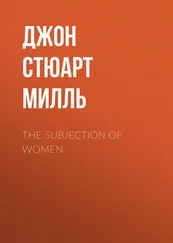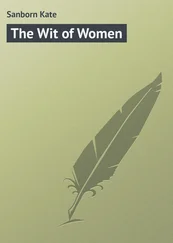On the day of the conference, her roommate slipped Tiao into the meeting room. Tiao has forgotten now what was said in the conference; she remembers only that Fang Jing looked younger than he did in the movie and that he spoke Mandarin with a southern accent. He had a resonant voice, and when he laughed, he frequently leaned back, which made him look easygoing. She also remembered he held a wooden tobacco pipe and would wave the pipe in the air when he got excited. People thought that was natural and charming. He was surrounded by good-looking men and women. When the conference ended, the attendees swarmed forward, held out their notebooks, and asked him for autographs. Her roommate grabbed Tiao’s hand, wanting to rush forward with the crowd. Tiao rose from the chair but backed away. Her roommate had no choice but to let go of her and push forward on her own. In fact, the notebook in Tiao’s hand had been turned to a new page, a blank page ready for Fang Jing to sign his name. But she still backed away clutching the notebook, maybe because she was a bit timid, maybe because an incongruous pride inhibited her. Even though she was so insignificant compared to him, she was still unwilling to play the airhead autograph hound. She backed away, all the while regretting the lost chance. Right then, Fang Jing stretched out an apelike arm from the midst of the swirl of people and pointed at Tiao, who stood apart, saying, “Hey, you!” as he parted the crowd and walked toward Tiao.
He came up to her and grabbed her notebook without asking, and signed his famous name in it.
“Happy now?” He looked directly into Tiao’s eyes with a faintly condescending attitude.
“I guess I would say that I’m very grateful instead, Mr. Fang Jing!” Tiao felt surprised and excited. Emboldened, she started to forget herself. “But how do you know what I want is your autograph?” She tried to look directly into his eyes, too.
“Then what do you want?” He didn’t understand.
“I want … it’s like this, I want to solicit a manuscript for a book project—” she said, on the spur of the moment, confronting Fang with childlike seriousness, distinguishing herself from the autograph hunters.
“I think we should trade places,” Fang Jing said, fumbling in his pocket and taking out a wrinkled envelope. “Think it’s okay to ask you to sign your name for me?” He handed the envelope to Tiao. Tiao was embarrassed, but she still signed her name, and, at Fang Jing’s request, left her publishing house’s address and number. Then she took the opportunity to talk further about the idea for which she was soliciting manuscripts, even though she had come up with it on the spot only a few minutes before. She said she had submitted a proposal and the Publishing House had approved it. She intended to do a series of books featuring the childhoods of celebrities, including scientists, artists, writers, scholars, directors, and professors, aimed at elementary and middle school students. Mr. Fang Jing’s work and harsh life experiences had already attracted so much attention, if he could write a memoir about himself for children, it would definitely become popular with them, and would benefit society as well. Tiao talked quickly while feeling ashamed of her reckless fabrications. The more ashamed she was, the more in earnest she pretended to be. It was as though the more she talked, the more real it seemed. Yes, it felt quite real. How she hoped Fang Jing would turn her down while she rattled on. Then she would feel relieved, and then everything would be as if nothing had happened. It was actually true that nothing had happened. What could happen between a big celebrity and a common editor from the provinces? But Fang Jing didn’t interrupt her or turn her down; those TV journalists interrupted them, swarming over him to take him to his interview.
Not long after the conference, Tiao received the first letter from Fang Jing, written on the aeroplane. She read the letter numerous times, studying, analyzing, and chipping away at the words and lines to reveal what they meant or did not mean. Why did he have to write a letter to me on an aeroplane? Why must he reveal his location in Shanghai or San Francisco so carelessly to a stranger? In Tiao’s mind, everything about a celebrity should be mysterious, including his whereabouts. Why would he only consider the idea seriously because it was a request of Tiao’s? Did that make sense? She turned those thoughts over and over in her mind, unable to think clearly, but unable to resist puzzling over them, either, letting a secret sweetness spread in her heart. At least her little vanity got an unexpected boost and her job would probably get off to a wonderful start as well. She’d have to take that offhand, improvised plan seriously. She would make a feasible, deliberate, and persuasive presentation to her editor-in-chief, trying to get the plan approved by the Publishing House just because a celebrity like Fang Jing had promised to consider writing for her. Everything sounded real.
A few days later, Tiao received Fang Jing’s second letter from San Francisco.
This was number two in Tiao’s file:
Tiao:
You don’t mind me leaving out the word “comrade,” do you? I feel very strange. Why do I keep on writing to you — a girl who wouldn’t condescend to ask for an autograph from me? When a large group of beautiful girls leaped at me, you backed away. Please forgive me for such a silly, conceited sentence. But they have been leaping at me constantly, which I’ve enjoyed for the last two years, half reluctantly, and yet with a feeling that it was my due. Then you appear, so indifferent and so puzzling. Right now, on the West Coast of the United States, thousands of miles away, your face on that day appears before me constantly, your eyes like an abyss that no one would dare to look into, your lips mysteriously sealed. I don’t think you came to me on your own; you were sent by a divine power. When I left for America, I brought a map of China along as if compelled by a supernatural force. It was a little pretentious, as though I were showing off how much I love my country and what a fanatical patriot I am. Not until later did I realize I brought it because I wanted to carry with me on a map of China — Fuan — your city, where you live, small as a grain of rice on the map, which I constantly touch with my fingertips — that grain of rice just like … just like … I think, although we have only met once, we actually don’t live far apart, only two hundred kilometres. Maybe sometime I will go to the city where you live to visit you. Does that sound ridiculous? If it’s not convenient, you don’t have to see me. I would be happy just to stand under your window. Also, after serious consideration, I believe the topic of your proposal is very important. I’ve made up my mind to write the book for you; I can write during breaks between scenes on set.
I went to the famous Golden Gate Bridge this afternoon. When I stood beside the great bridge to look at San Francisco in the sunset, the dream city created with its man-made island, I got a clear idea about this city for the first time. If I had misgivings or prejudices about cities before, San Francisco changed my perception. It made me realize the heights human wisdom and power can reach and what a magnificent scene the human and the city create together out of their striving. I don’t know your life experience, and have no idea how much people your age know about Western cuisine. Here at Fisherman’s Wharf, they sell a very interesting dish: a big, round, crusty loaf of bread with a lid (the lid is also bread). When you open it, there is steaming-hot, thick, buttery soup inside. The bread is actually a big bowl. You have to hold the bread bowl carefully while eating. You have a bite of bread and a mouthful of soup. After you finish the soup, you eat the bowl, which goes down to your stomach. When I stood in the ocean breeze eating my fill of the bread bowl, I recalled the years I spent in the labour camp. I was thinking even if I exhausted all the creativity in me, I couldn’t have invented such a simple and unusual food. Oddly, I also thought about you. For some reason I believe you would love to eat this.
Читать дальше
Конец ознакомительного отрывка
Купить книгу












